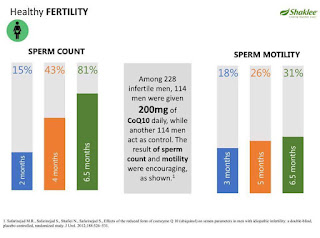This is the third of a series of six articles in which
Shaklee collaborates with Dato’ Dr Rajbans Singh,
to jointly inspire more Malaysians to achieve better
nutrition and wellness.
Who is Dato’ Dr Rajbans Singh?
He's actually the President of Malaysian
Wellness Society. I always love to listen to him on the radio early in the morning because he shared a lot of great health tips to the listeners.
This time, I am so happy to see him appeared in the Shaklee Bulletin for the month of Feb 2018, sharing with us the top 8 benefits of CoQ10.
Coenzyme Q10 (CoQ10), also known as
ubiquinone comes in two forms: ubiquinol,
the active antioxidant form, and ubiquinone,
the oxidised form in which the body partially
converts to ubiquinol. It exists everywhere
in the body. Although CoQ10 behaves like a
vitamin, its primary role serves as a catalyst
in certain reactions. Thus, it is not considered
a true vitamin because it is synthesised in
the cells.
CoQ10 is a natural supplement required for
many important functions in the body. However,
a lot us do not realise that CoQ10 decreases as
we age which may then lead to other health
implications.
Benefit #1: Energy Production
CoQ10 acts as a catalyst in the chain of
chemical reactions that create adenosine
triphosphate (ATP), a compound that yields
the energy needed by cells to function. Due
to Coenzyme’s role in energy production, it
stands to reason that a low concentration
of this substance is detrimental to health
in general. CoQ10 is most abundant in
organs that require a large supply of
energy especially the heart, liver and
immune system.
Benefit #2: CoQ10 Antioxidant Powers
Like a number of other vitamins, CoQ10
is an antioxidant. Similar in structure to
vitamin E, another antioxidant, CoQ10 has
been shown to scavenge harmful free
radicals and thus may help prevent cell
damage in a variety of conditions.
Benefit #3: Parkinson’s Disease
Early research suggests that high doses
of CoQ10 might be beneficial for people
in the early stages of this progressive
disorder of the nervous system that affects
movement
Benefit #4: Cardiovascular Health
Most of the research on CoQ10 involves the
heart, since this nutrient is most concentrated
in that organ. CoQ10 is beneficial for heart
health in many ways. It assists in maintaining
the normal oxidative state of LDL cholesterol,
helps assure circulatory health and supports
optimal functioning of heart muscle. CoQ10
may also help support the health of vessel
walls as well as help reduce blood pressure.
Some research also suggests that when
combined with other nutrients, CoQ10 might
aid recovery in people who might have had
bypass and heart valve surgeries.
Benefit #5: Physical Performance
CoQ10 is involved in energy production.
It is believed that this supplement can
improve your physical performance. Some
research has also shown that CoQ10 may
assist in reducing headaches / migraines as
evidenced by work done at Mayo clinic.
Benefit #6: Statin-induced Myopathy
Statins reduce the formation of CoQ10 in the
body and causes muscle weakness. Thus,
taking CoQ10 supplements can help reduce
the muscle weakness.
Benefit #7: CoQ10 Benefits On Skin Health
CoQ10 being an antioxidant aids in skin
health. It also supports the health of vessel
walls, hence improving blood supply to
the skin.
Benefit #8: Fertility
CoQ10 improves sperm motility in men and
by its antioxidant properties, improves blood
supply. As such, CoQ10 increases fertility in
both men and women.
Though our body can produce CoQ10, the ability starts to decline around age 20 and enters a tailspin at the age of 40 and so on until age 80. That is why is it very important to supplement our body with CoQ10 everyday.
Some of you may be thinking that you can get all these from the normal diet that you are taking everyday. But do you have any idea how much food do you actually need to consume in order to meet the standard amount of CoQ that a healthy body need?
The
recommended daily CoQ10 intake per day is 100 mg. But how much is 100 mg if we
are taking it from our daily diet?
100 tablespoons of
canola oil
3 kg of red meat
100 cups of boiled
broccoli
3.3 kg of peanut
butter
Wow! Can you
actually eat 100 cups of boiled broccoli in a day?
Shaklee CoQ10 is
called CoQ-Trol. What is so special about our CoQ-trol?
Shaklee CoQ-Trol
now comes with 100 mg of CoQ10, Resveratrol (great antioxidants) and Tocopherol (Vitamin E).
Wanna give
CoQ-Trol a try?
Feel free to
contact Mommy F for more info and attractive deal.
Dr. Mommy F
Senior Coordinator
#coqtrolwithmommyf
#healthywithmommyf
#shakleewithmommyf





































